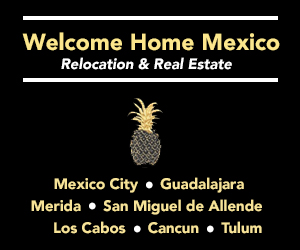Retire in Queretaro Guide
Summary: Retire in Queretaro with confidence, armed with the knowledge from our extensive guide. It covers critical considerations for retirees, from the cost of living and climate to housing, healthcare, and residency choices in Queretaro. We also delve into the social and cultural scene, volunteering options, public transportation facilities, and the city's walkability, helping you make an informed decision.
Queretaro is a popular destination for international retirees, offering a unique blend of rich history, vibrant culture, and modern amenities. The city's low cost of living, pleasant climate, and excellent healthcare system are just a few of the reasons why many retirees choose to call Queretaro home. However, like any foreign country, there are challenges to consider, such as language barriers and cultural differences.
Cost of Living
One of the biggest draws for retirees in Queretaro is the affordable cost of living. Housing, groceries, utilities, and healthcare are all significantly cheaper than in many Western countries. For example, a comfortable two-bedroom apartment in a nice neighborhood can be rented for as little as $500 a month. Dining out is also very affordable, with a meal at a mid-range restaurant costing around $10.
Climate
Queretaro boasts a temperate climate, with warm, sunny days and cool nights. The city experiences a rainy season from June to September, but the rest of the year is generally dry. This pleasant weather allows retirees to enjoy outdoor activities year-round.
Healthcare
Queretaro is home to several top-notch hospitals and clinics, many of which offer services at a fraction of the cost compared to the U.S. Many doctors and medical staff speak English and have received training abroad, ensuring high-quality care for retirees.
Public Healthcare System
International retirees can enroll in Mexico's public healthcare system, known as Instituto Mexicano del Seguro Social (IMSS). However, many choose to use private healthcare due to its higher quality and shorter wait times. Private health insurance is affordable and widely available.
Residency Options
Retirees can apply for a temporary or permanent resident visa, both of which allow them to live in Mexico. The requirements include proving financial self-sufficiency and having no criminal record.
Parks and Recreational Activities
Queretaro offers a variety of recreational activities for retirees. The city is home to numerous parks, including the Alameda Hidalgo, a beautiful green space perfect for walking or picnicking. For those interested in history and culture, the city's historic center, a UNESCO World Heritage site, is a must-visit.
Restaurants
Queretaro's culinary scene is diverse and affordable. Some popular local spots include La Mariposa, known for its traditional Mexican cuisine, and El Meson de Chucho el Roto, a favorite for its colonial-era ambiance and delicious dishes.
Learning the Language
While many locals speak English, learning Spanish can enrich your experience in Queretaro. The city has several language schools, such as the Harmon Hall, which offers Spanish classes for all levels.
Local Culture
Queretanos are known for their friendliness and hospitality. They are proud of their city's history and culture, and are always eager to share it with visitors. The city has a relaxed pace of life, which many retirees find appealing.
Meeting People and Volunteering
There are plenty of opportunities for retirees to meet people and get involved in the community. Volunteering is a great way to give back and make connections. Organizations like Feed the Hungry and Casa Hogar offer opportunities to help those in need.
Housing
Most retirees in Queretaro live in apartments or houses in the city center or in gated communities on the outskirts. The city offers a range of housing options to suit different budgets and lifestyles.
Transportation
Queretaro has an efficient public transportation system, and many areas of the city are walkable. While having a car can be convenient for trips outside the city, it's not a necessity for daily life.
In conclusion, retiring in Queretaro, Mexico offers a unique blend of affordability, quality of life, and cultural richness. However, it's important for retirees to do their research and be prepared for the challenges of living in a foreign country.
About the Author
 Betsy Burlingame is the Founder and President of Expat Exchange and is one of the Founders of Digital Nomad Exchange. She launched Expat Exchange in 1997 as her Master's thesis project at NYU. Prior to Expat Exchange, Betsy worked at AT&T in International
and Mass Market Marketing. She graduated from Ohio Wesleyan University
with a BA in International Business and German.
Betsy Burlingame is the Founder and President of Expat Exchange and is one of the Founders of Digital Nomad Exchange. She launched Expat Exchange in 1997 as her Master's thesis project at NYU. Prior to Expat Exchange, Betsy worked at AT&T in International
and Mass Market Marketing. She graduated from Ohio Wesleyan University
with a BA in International Business and German.
Some of Betsy's articles include 12 Best Places to Live in Portugal, 7 Best Places to Live in Panama and 12 Things to Know Before Moving to the Dominican Republic. Betsy loves to travel and spend time with her family. Connect with Betsy on LinkedIn.
Additional Information:




